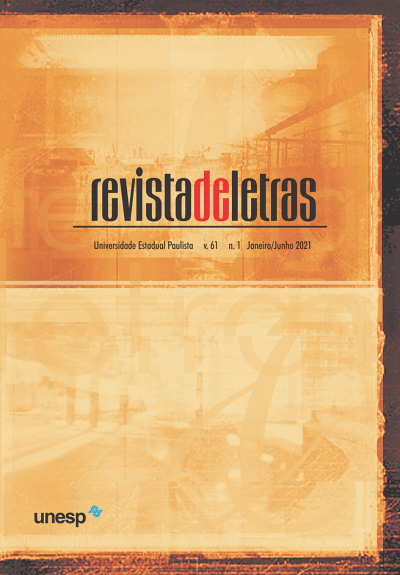Subjectivity, melancholy and realism
reading O verão tardio, by Luiz Ruffato
Keywords:
Realism, subjectivity, time, melancholyAbstract
This paper aims to analyze the temporal relations and the hostility of the surrounding spaces experienced by the narrator-protagonist of O verão tardio (2019), by Luiz Ruffato. We propose that the realism in this work is not due to the richness of detail with which the narrator describes the world around him, or the objectivity of the narrative that evokes social critique, but rather the subjectivity of a particular - and therefore limited - gaze about the same fictional world. The confessional tone of the first-person narrative is the first element to establish empathy between the reader and the protagonist - a melancholic man, whose physical sensations are on the surface of the text and whose mechanical and repetitive gestures question the value of adapting to social expectations, and the relationship between the subject, his past and his hopelessness regarding the future. We rely on the theoretical support of Schøllhammer’s (2009, 2012, 2020) discussions about affective realism as a trend in recent Brazilian literature (to which we align our reading of the novel), Pellegrini’s critical observations on Ruffato’s work and the contributions of Ginzburg (2012, 2017) about the narrator, and about violence and melancholy as constitutive elements of relationships throughout the history of Brazilian literature and society.
Downloads
Published
Issue
Section
License
Os manuscritos aceitos e publicados são de propriedade da Revista de Letras. Os originais deverão ser acompanhados de documentos de transferência de direitos autorais contendo assinatura dos autores.
É vedada a submissão integral ou parcial do manuscrito a qualquer outro periódico.
A responsabilidade do conteúdo dos artigos é exclusiva dos autores.
É vedada a tradução para outro idioma sem a autorização escrita do Editor ouvida a Comissão Editorial.

